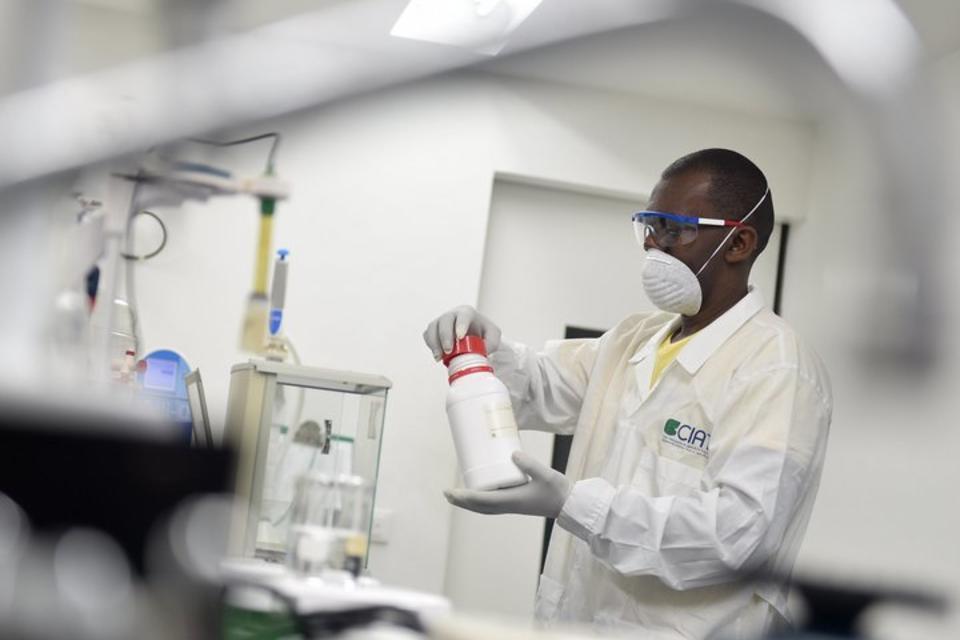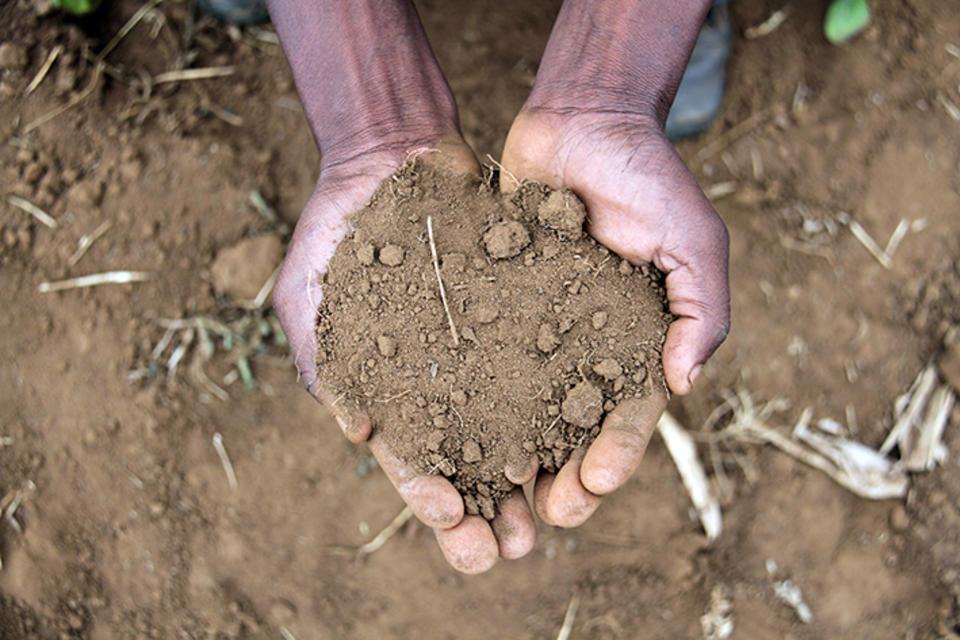Press and News The response from the Alliance of Bioversity and CIAT to the COVID-19 crisis in Asia

In the decades before the COVID-19 crisis, Asia had taken great steps to reduce poverty. The socioeconomic fallout of the pandemic, however, has raised the possibility that gains on poverty could be lost. The situation has also increased concerns related to food security and nutrition. With a strong track record of helping governments respond to shocks from climate change and food price crises, the Alliance of Bioversity International and CIAT is well positioned to support our partners in managing COVID-19’s impact on food systems. The current crisis triggered a 3.11% decrease in agricultural production, with a subsequent decline in agricultural labor impacting more than 100 million individuals in Southeast Asia alone
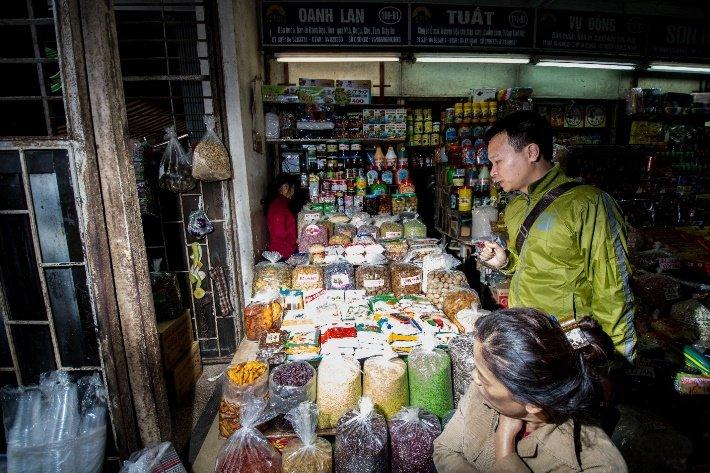
Traditional food markets in Vietnam are important sources of food for communities in rural, peri-urban, and urban areas. The Alliance is looking at big data through free WiFi to assess potential impacts of COVID-19 in traditional markets across Asia. Credit: CIAT/G. Smith
While the primary focus of governments is on the COVID-19 public health crisis, the measures taken to control the spread of the virus also triggered widespread global disruptions that affected food systems. The uncertainty this brings threatens long-term food security, especially for more vulnerable sectors.
The Alliance in Asia is working with governments, research organizations, and NGOs to help safeguard food systems in the region by testing quick-response measures, monitoring and mitigating current impacts, improving and accelerating responses, and facilitating recovery.
Immediate actions
The Alliance quickly mobilized resources and expertise to address immediate needs. This included supporting our host countries to meet short-term food security requirements and providing real-time information on COVID-19-driven shifts in food consumer behavior, and continued safeguarding of our global collections of seeds and germplasm, assuring that suitable and improved materials are ready for deployment to farmers across the globe.
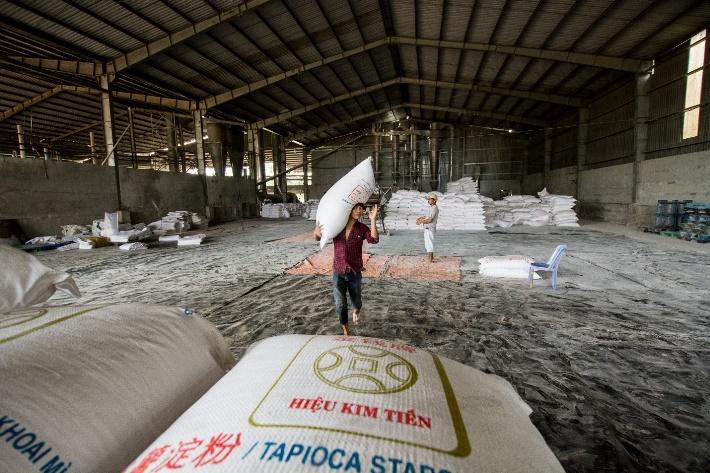
Cassava is a staple crop used across Southeast Asia. The Alliance continues the work to prevent the spread of the Cassava Mosaic Disease to minimize the threat it poses during the COVID-19 pandemic. Credit: CIAT/G. Smith
Distribution of seeds and planting materials and safeguarding food sources
The Alliance is ensuring access to much-needed planting materials and seeds to communities and farmers in Central Asia, Nepal, and India from the community seedbanks. This assistance enables farmers to have an uninterrupted planting season. We are also maintaining seedling and nursery rice beds for the IFAD Evolutionary Plant Breeding Project trials in Nepal, Bhutan, and the UN Environment-implemented GEF project in India, which remained operational during lockdowns because they are essential services. In India alone, we have assisted 1,648 farmers by distributing 40 quintal seed of 46 varieties of 16 crops, giving farmers sources of income amidst the pandemic.
In Laos, the threat of the Cassava Mossaic Disease is even more magnified during the pandemic. The Alliance office ensures that station work is proceeding to help contain the spread of the disease.
Digital Agriculture and Big Data
The Alliance is exploring digital tools to assess potential impacts of COVID-19 in agriculture and food systems.
The Alliance is in conversation with interested parties to implement a digital platform to support open food markets while reducing or shortening market visits of vulnerable people to reduce risks of COVID-19 contagion. This initiative would have the potential to make markets more efficient and critical information more transparent to farmers in the post-COVID-19 recovery. While we are implementing this solution in Central America, this is also relevant in various Asian contexts.
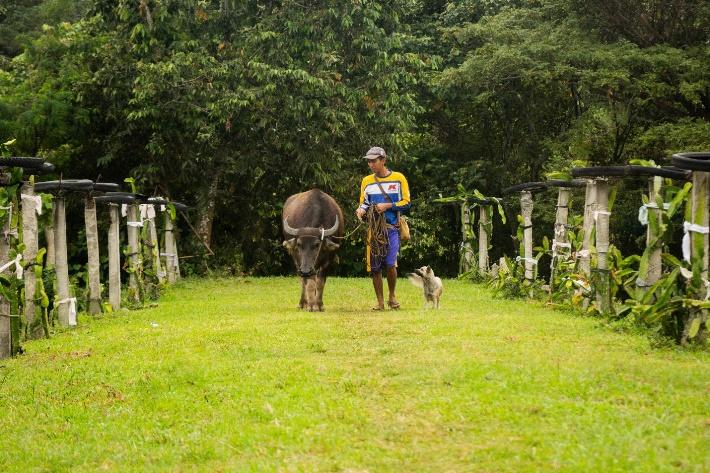
In the Philippines, the Alliance helps the government by using the 5Q approach and digital agriculture tools to help assess the impact of the pandemic to the agriculture sector. Credit: CIAT/M. Mamon
The Alliance’s free Wi-Fi service for food markets project in Vietnam helped observe and understand consumer behavior in real-time, before, during and after the crisis. Paired with digital survey information of vendors in the markets, we can monitor and potentially map consumer behavior in traditional food markets across Asia.
The Alliance is working in the Philippines and Pakistan with governments and partners to lobby for the use of quick-survey tools like 5Q to provide near real-time monitoring of the impact of the pandemic on the food system.
The Alliance in China is working towards an assessment of the impact of COVID-19 on agrobiodiversity. Using the Agrobiodiversity index, we are understanding management practices during the crisis to reevaluate and adjust current operations and adapt to the new normal.
A country-centered approach
By drawing on decades of experience working at global and local scales, our scientists are focusing on supporting food systems at the country level, at least in the short- to medium-term.
Continued trade disruption, food price volatility, and border closures mean that people – especially in countries already affected by climate change, land degradation, migration, and poverty – will likely suffer from food shortages and lack of access to nutritious food.
While we remain committed to our ongoing research agenda, country-level food system support will be key to developing robust and evidence-based proposals so partners, funders, investors and policymakers can address the impacts of COVID-19 on food systems. Our work complements a series of COVID-19 related initiatives by other members of the CGIAR, the world’s largest global agricultural innovation network.
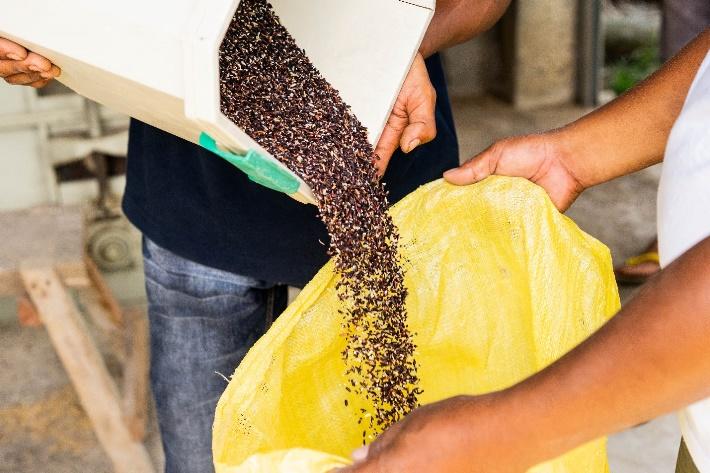
Food systems are bearing the brunt of lockdowns across Asia. We are providing support to countries to safeguard food security in the middle of a global crisis. Credit: M. Mamon
We have divided this response into three main areas:
First, we will monitor impact. Our researchers have already mobilized data-gathering resources to learn how COVID-19 is influencing agricultural production and consumer behavior. This work will allow us to evaluate the extent to which country-level food systems have been disrupted by the pandemic.
Second, we will improve and accelerate responses. In the short- to medium-term, our impact monitoring will lead to the deployment of targeted policy recommendations and proposals to keep national food system supply chains open and thriving, even under conditions of global stress.
Third, we will facilitate recovery and building back better. Over the longer term, we will embed resilience in national food systems through evidence-based policy and action recommendations. We will do this by helping countries shift consumer and agricultural behavior toward increased domestic food production, improved diets, and improved resilience to future external shocks. For example, we recently provided scientific evidence for a USD 500-million investment by the World Bank in climate-smart livestock through our Bangladesh Climate-Smart Agriculture plan.
“Even before the CODVID-19 crisis, in-depth studies over the past several years have pointed to the need for our food systems to become more resilient, sustainable and diet quality conscious. The COVID-19 crisis is highlighting the importance of this even further,” says Stephan Weise, Managing Director of the Alliance in Asia. “The Alliance of Bioversity International and CIAT is committed to working together with the public and private sectors and civil societies to develop relevant solutions and contribute to necessary changes in the food systems to address future shocks.”

